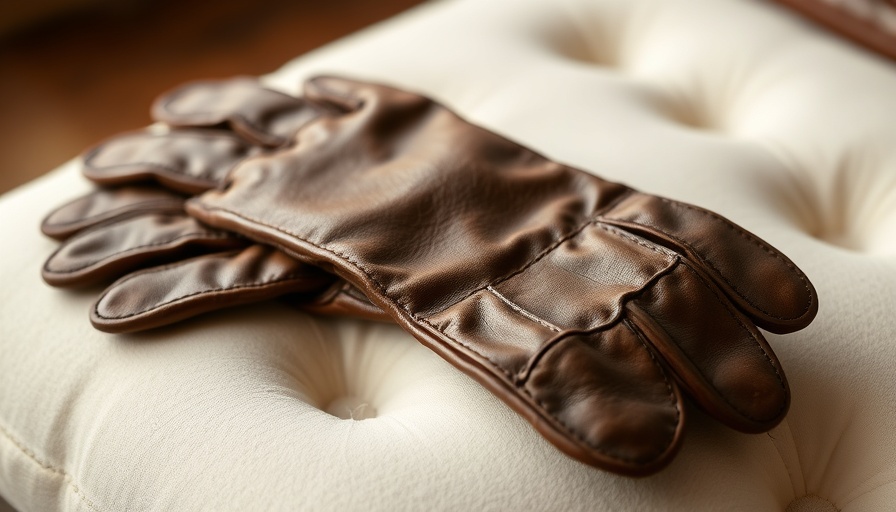
Historical Significance of Lincoln's Gloves
The recent auction of President Abraham Lincoln's gloves, sold for an astounding $1.5 million, does more than highlight a remarkable transaction; it underscores the enduring fascination with Lincoln's life and legacy. His gloves, worn on the tragic night of April 14, 1865, at Ford’s Theater, are emblematic of the poignant moment in American history that irrevocably changed a nation. The gloves, along with other auctioned artifacts such as handkerchiefs and personal items, serve as tangible connections to Lincoln as a leader and a symbol of the fight for unity and civil rights following his death.
The Auction: A Financial Rescue for the Lincoln Presidential Foundation
The auction, which amassed nearly $7.9 million from over 100 items, was critical for the Lincoln Presidential Foundation as it attempts to manage its financial obligations. This scenario sheds light on how historical artifacts can serve financial purposes for institutions dedicated to preserving history. The Morton Auction is a testament to the ongoing public appetite for items associated with pivotal historical figures, reflecting not only their monetary value but also their importance to American culture.
Comparative Sales: The Value of Historical Relics
The sale of Lincoln’s gloves aligns with a trend where historical items fetch remarkable prices at auction. For instance, other items from the auction included a blood-stained handkerchief that sold for $826,000 and a cufflink retrieved from Lincoln’s body that sold for $445,000. Such figures provoke a discourse about the evaluation of history through its artifacts and share a parallel with recent auctions of items from other influential leaders, illuminating how American society reconciles personal belongings with their historical narratives.
Public Fascination: Why Relics Like Lincoln's Matter
The remarkable interest in Lincoln's gloves can be attributed to the intricate relationship Americans have with their history. Lincoln's presidency, coupled with his assassination, marks a significant turning point in American civil rights and governance. The sale of items associated with him acts as a collective memory trigger, bringing historical lessons into the present context. Such relics create communal ties among Americans, instilling a sense of shared heritage that continues to inspire discussions around issues of leadership, morality, and justice.
Current Trends in Auctioning Historical Artifacts
The phenomenon of auctioning historical relics has gained momentum in recent years, with many collectors vying for items linked to notable figures. This reflects broader consumer trends as people increasingly seek personal connections to historic moments, particularly in how they relate to ongoing debates surrounding civil rights today. The interest in collectibles not only contributes to significant financial gain for institutions but also ignites public conversation about heritage and the narratives we choose to remember and celebrate.
Auction houses now capitalize on the online auction format, expanding accessibility and interest among diverse demographics, thereby redefining who can participate in historical treasure hunting. The digital age has democratized this space, allowing history enthusiasts, investors, and casual observers alike to engage in preserving and collecting pieces of history.
What Lincoln's Gloves Represent Today
In the wake of the recent auction results, Lincoln’s gloves are not merely historical artifacts; they emerge as symbols of resilience, healing, and the ongoing struggle for civil rights. As society confronts contemporary issues of inequality and justice, the legacy of such relics becomes even more relevant, urging Americans to reflect on the lessons from the past while considering their implications for current events. The enduring nature of Lincoln's story transcends time, reminding us of the importance of understanding history as we navigate our collective future.
 Add Element
Add Element  Add Row
Add Row 



 Add Row
Add Row  Add
Add 


Write A Comment